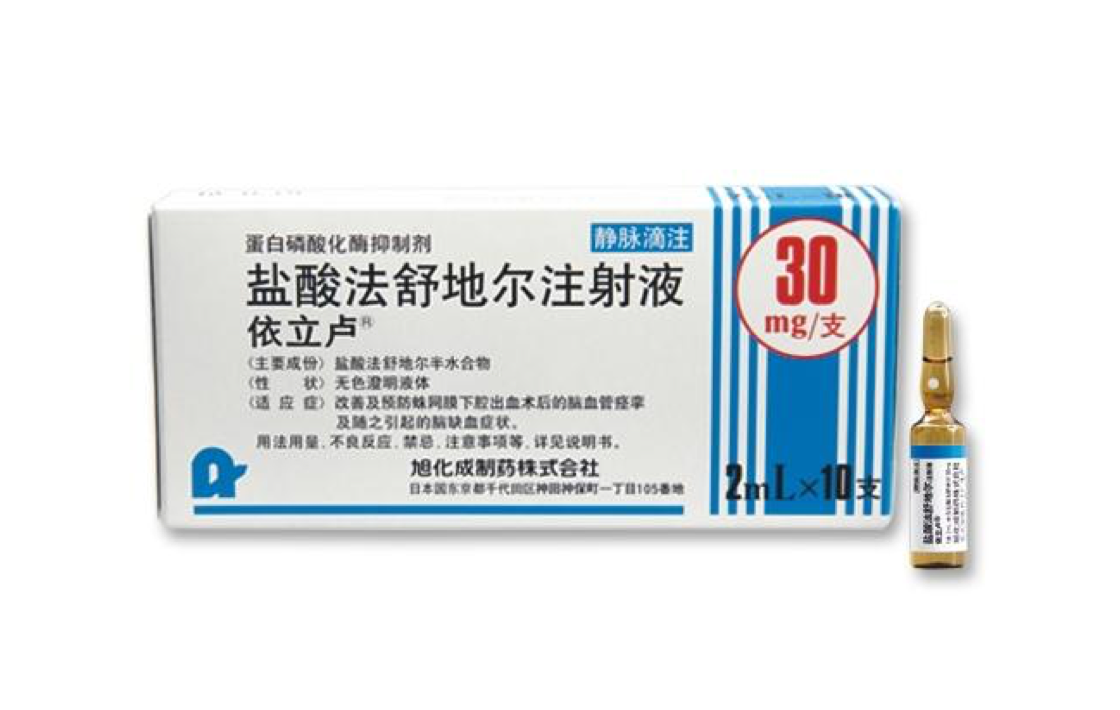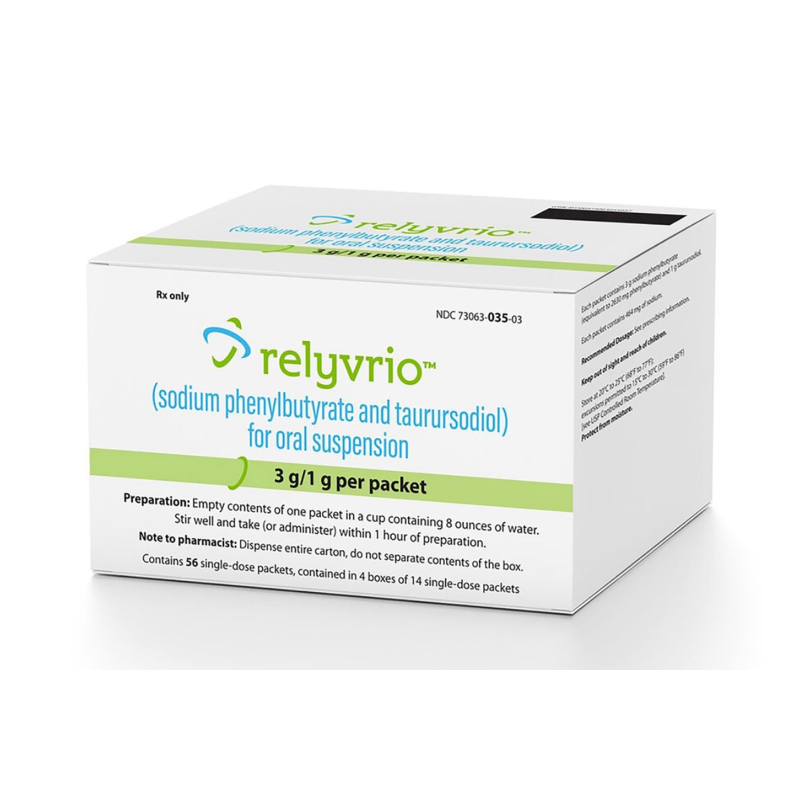Eril (fasudil hydrochloride) vs Relyvrio (sodium phenylbutyrate and taurursodiol)
Eril (fasudil hydrochloride) vs Relyvrio (sodium phenylbutyrate and taurursodiol)
Eril (fasudil hydrochloride) is a rho-kinase inhibitor primarily used in Japan for the improvement of symptoms such as dizziness and headaches associated with chronic subarachnoid hemorrhage, and it works by inhibiting a protein that causes narrowing of the blood vessels. Relyvrio (sodium phenylbutyrate and taurursodiol), on the other hand, is approved in the United States for the treatment of amyotrophic lateral sclerosis (ALS), and it is believed to work by reducing neuronal cell death and improving mitochondrial function. When deciding between these two medications, it is essential to consider the specific condition being treated, as Eril is focused on cerebrovascular issues, while Relyvrio targets neurodegenerative diseases like ALS; a healthcare provider can offer guidance based on the individual's diagnosis and treatment goals.
Difference between Eril and Relyvrio
| Metric | Eril (fasudil hydrochloride) | Relyvrio (sodium phenylbutyrate and taurursodiol) |
|---|---|---|
| Generic name | Fasudil hydrochloride | Sodium phenylbutyrate and taurursodiol |
| Indications | Cerebral vasospasm, subarachnoid hemorrhage, chronic subdural hematoma | Amyotrophic lateral sclerosis (ALS) |
| Mechanism of action | Rho kinase inhibitor | Not fully understood; proposed mechanisms include improving mitochondrial function and reducing neuronal cell death |
| Brand names | Eril | Relyvrio |
| Administrative route | Intravenous | Oral |
| Side effects | Headache, dizziness, hypotension, gastrointestinal disturbances | Diarrhea, abdominal pain, nausea, upper respiratory tract infection |
| Contraindications | Hypersensitivity to fasudil or any component of the formulation | Hypersensitivity to any component of the product |
| Drug class | Rho kinase inhibitor | Combination of amino acid derivative and bile acid derivative |
| Manufacturer | Asahi Kasei Pharma | Amylyx Pharmaceuticals |
Efficacy
Efficacy of Eril (Fasudil Hydrochloride) in ALS
Eril, known by its active ingredient fasudil hydrochloride, is a rho-kinase inhibitor that has been studied for various medical conditions, including cerebral vasospasm. However, its efficacy in Amyotrophic Lateral Sclerosis (ALS) is an area of emerging research. Preliminary studies suggest that fasudil may have neuroprotective effects that could potentially benefit ALS patients. These studies have focused on fasudil's ability to improve neuronal survival and slow disease progression by inhibiting pathways that lead to neuroinflammation and neuronal death. Despite these promising findings, more extensive clinical trials are required to establish the efficacy and safety of fasudil for ALS treatment.
Efficacy of Relyvrio (Sodium Phenylbutyrate and Taurursodiol) in ALS
Relyvrio, a combination of sodium phenylbutyrate and taurursodiol, has been specifically approved for the treatment of Amyotrophic Lateral Sclerosis (ALS). This medication works by targeting cellular pathways that affect both neuronal survival and mitochondrial function. Clinical trials have demonstrated that Relyvrio can slow the decline in physical function in people with ALS. The CENTAUR trial, a key study supporting Relyvrio's approval, showed that patients taking the drug experienced a slower rate of decline in the ALS Functional Rating Scale-Revised (ALSFRS-R) compared to those taking a placebo.
Furthermore, an extension of the CENTAUR trial indicated that patients who started Relyvrio earlier may have a survival advantage over those who began treatment later. This extension study suggested that earlier intervention with Relyvrio could be associated with better long-term outcomes. However, it is important to note that while Relyvrio has demonstrated efficacy in slowing disease progression, it is not a cure for ALS. Patients and healthcare providers should discuss the potential benefits and risks of this treatment in the context of the individual patient's condition.
It is also critical to recognize that the efficacy of ALS treatments like Relyvrio can vary from patient to patient. Factors such as disease stage, rate of progression, and individual patient characteristics can influence how well the treatment works. As with any medication, ongoing research and post-marketing surveillance continue to refine our understanding of the optimal use of Relyvrio in ALS management. Healthcare providers should stay informed about the latest evidence to make the best treatment decisions for their patients with ALS.
Regulatory Agency Approvals
Eril
-
Pharmaceuticals and Medical Devices Agency (PMDA), Japan

Relyvrio
-
Food and Drug Administration (FDA), USA

Access Eril or Relyvrio today
If Eril or Relyvrio are not approved or available in your country (e.g. due to supply issues), you can access them via Everyone.org.
How it works

Make an enquiry
Choose the medicine you want to buy, answer a couple of questions, and upload your prescription to speed things up. We’ll get back to you within 24 hours.


Make an enquiry
Choose the medicine you want to buy, answer a couple of questions, and upload your prescription to speed things up. We’ll get back to you within 24 hours.


Breeze through the paperwork
We'll guide you through the required documents for importing unapproved medicine, ensuring you have all the necessary information.


Get a personalized quote
We’ll prepare a quote for you, including medicine costs and any shipping, administrative, or import fees that may apply.


Receive your medicine
Accept the quote and we’ll handle the rest - sourcing and safely delivering your medicine.

Some text on this page has been automatically generated. Speak to your physician before you start a new treatment or medication.
Let's talk
If you have any questions, call us or send us a message through WhatsApp or email:
Contact us




